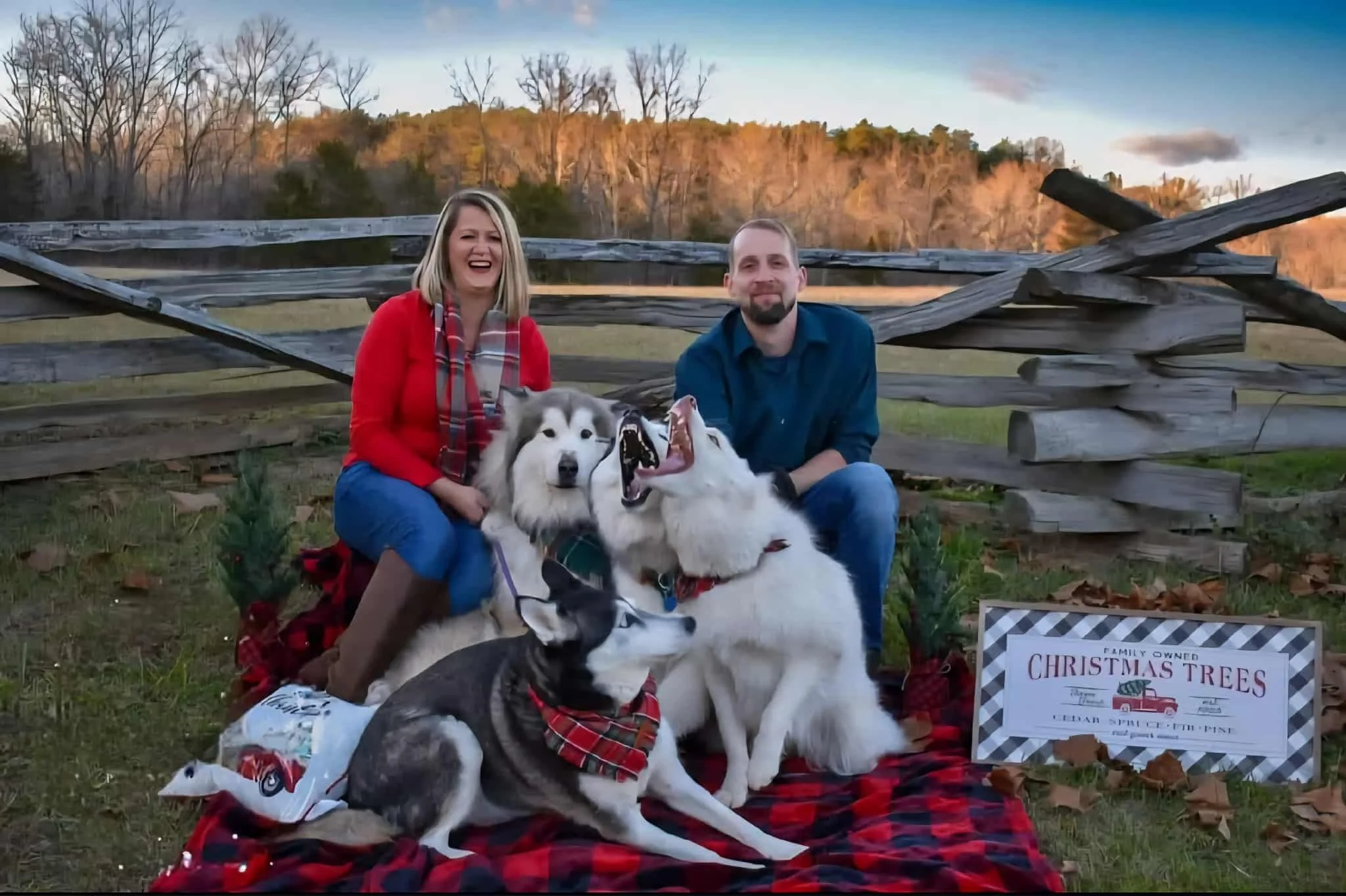Life with a Senior Husky
As Huskies age, their needs and behaviors also change. Caring for them in their golden years requires patience, understanding and ongoing adjustments to ensure that they remain comfortable, healthy and happy.
Senior Huskies may now lack the stamina for long runs or lengthy play sessions. Some may gain weight because of this while others may lose weight due to health issues. Arthritis and hip dysplasia may make it difficult for them to get up or to climb stairs. They may display signs of vision and hearing loss: having cloudy eyes and being unresponsive to sounds. They may have duller and/or thinner coats. They may show signs of cognitive decline through confusion, anxiety and/or restlessness.
Proper nutrition is essential to the ongoing health of senior Huskies, and so, as their metabolism slows, their dietary needs evolve. Since they now need fewer calories to keep their weight stable, feed them specially formulated senior dog food with balanced nutrients. Veterinary experts suggest such brands as:
Hill’s Science Diet Senior Vitality Dry Dog Food: designed for dogs, aged 7 and older, this food contains a blend of ingredients that support brain function, energy and a healthy coat, and includes omega-3 and -6 fatty acids.
Blue Buffalo Life Protection Formula Senior Dog Food: With real meat as the first ingredient, it not only provides high-quality protein to maintain senior Huskies’ muscle mass, it contains whole grains, garden vegetables and fruit, as well as glucosamine and chondroitin to support their joint health and mobility.
Purina Pro Plan Senior 7+ Bright Mind Formula: Designed to enhance alertness and mental sharpness in dogs, aged 7 and older, it includes a blend of brain-supporting nutrients, EPA, an omega-3 fatty acid, as well as glucosamine to support their joint health and mobility.
IAMS ProActive Health Mature Adult Senior Dog Food: With real chicken as the first ingredient, it also includes a blend of fiber and prebiotics to aid digestion and antioxidants to support a strong immune system.
But, before making any changes, consult your veterinarian to tailor a diet plan specific to your own senior Husky’s health and activity level. Then divide his meals into smaller portions to make digesting them easier, and ensure that fresh water is always available to keep him well hydrated.
Because regular exercise is essential for your Husky’s physical health, take him on several short walks instead of one long one, making it easier on his aging joints. Swimming is an excellent low-impact activity that will strengthen his muscles without straining his joints. To avoid overexertion, however, always monitor your Husky for signs of fatigue, such as heavy panting or a reluctance to move. And since senior Huskies can suffer from multiple health conditions, regular veterinary checkups and dental cleanings are a must.
As your Husky ages, his physical comfort becomes increasingly important, and specially designed orthopedic beds will both provide cushioning for his joints and ensure he enjoys a more restful sleep. Placing rugs or mats on smooth surfaces in your home will help prevent him from slipping and falling, while ramps of varying designs, weights and sizes, for use indoors and outdoors, will help him get into bed and into vehicles safely. Keep your home at a comfortable temperature to accommodate his reduced ability to regulate his body heat. Create a calm area where he can go if he’s tired or feels overwhelmed.
To keep your senior Husky’s mind as active as possible, use treat-dispensing puzzles to engage his problem-solving skills, play easygoing games of tug-of-war with him, reinforce his basic commands through daily training sessions and teach him some new, gentle tricks. Arrange playdates with other calm dogs and introduce him to new scents or safe, enclosed areas to explore. But, best of all, use this time to bond even more closely with the canine companion you adore!
Grooming also plays a crucial role in your senior Husky’s health and comfort. Brush him weekly to reduce shedding and improve the condition of his coat. Examine his skin for signs of growths or sores and check for lumps or obvious irritations. Keep his nails short to prevent any discomfort when he’s walking. Bathe him gently in lukewarm water and use a hypoallergenic shampoo to reduce the risk of skin irritation. Clean his ears and wipe away any discharge from his eyes to avoid infections.
As your Husky continues to age, be aware of such signs as his needing more rest, which may indicate declining energy levels, a reduced or increased appetite, which may signal some underlying health issues, and new anxiety or an unusual clinginess. Consult your veterinarian immediately to address these changes and modify your care plan accordingly.

